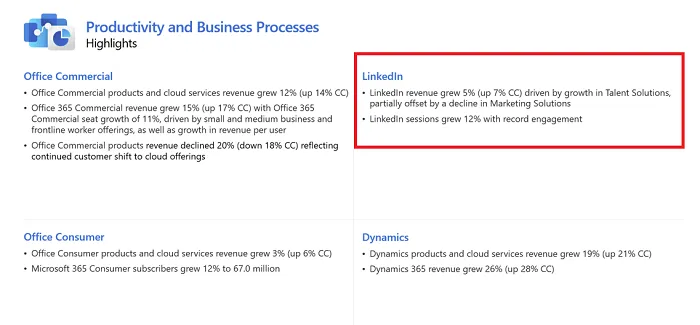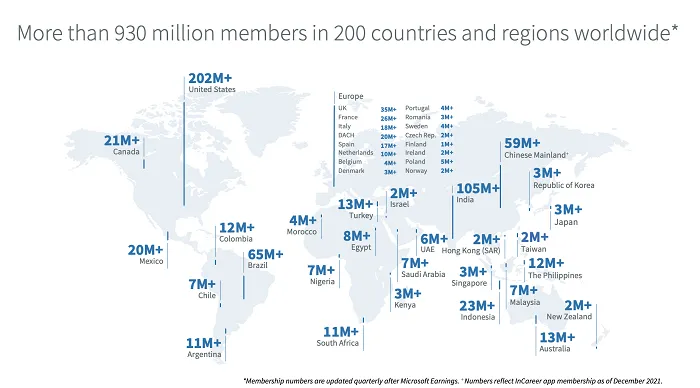“Sociable” is the latest commentary on important social media developments and trends from industry expert Andrew Hutchinson of Social Media Today.
LinkedIn has once again reported ‘record engagement’ in the app, as part of parent company Microsoft’s latest earnings announcement, which has pretty much become par for the course in tracking LinkedIn’s performance updates.

As you can see in the highlighted element above, LinkedIn engagement continues to grow, though what exactly that means is not entirely clear, as LinkedIn has reported the same ‘record levels of engagement’ note every quarter (except one) since 2018.
I mean, it could well be that LinkedIn is indeed seeing a new record high for engagement every single quarter, though that seems unlikely. But either way, there are no insights into what exactly this stat means, in terms of specific feed activity, post performance, etc.
What we do know, based on LinkedIn’s reports from earlier this year, is that the platform has seen
- A 22% increase in views of updates in the main feed year-over-year
- A 25% increase in public conversations in the app YoY
- Newsletter creation increased 10X in 2022
So we do have some indicators of what that record engagement actually is, while LinkedIn also shared some new insights into its latest algorithm tweaks just last month, and what it’s looking to incentivize in the app. But it’s not a heap to go on, in terms of more recent in-app activity.
In terms of revenue, LinkedIn saw a decline in overall ad spend in the most recent period, though Microsoft also reduced its overall marketing spend to offset this.
That’s pretty much reflective of the broader economic downturn, and the revision of marketing spend. LinkedIn’s overall revenue increased by $197 million, driven by stronger interest in its Talent Solutions recruitment offerings.
On another front, LinkedIn is also still reporting that it currently has 930 million members, despite losing China, which LinkedIn has now withdrawn from completely due to regulatory challenges in the region.
Though interestingly, while LinkedIn has removed China from its member map display, it hasn’t removed the 59 million plus Chinese members from its total count.
This was the map back in May, with China still included:

This is the map as currently displayed on the LinkedIn press info page:

You’ll note that while China has been removed, the total member count hasn’t changed, and the listed figures for each region do not add up to 930 million. So LinkedIn seems to be fudging its member numbers a little bit, and probably hoping that no one will actually count. But I did, and it’s not 930 million, so no idea whether those extra members are supposedly coming from.
But then again, total members is not a great metric for understanding platform engagement or growth either way. Twitter, for example, has around 250 million active users, and more than 1.5 billion inactive accounts. If Twitter were to follow LinkedIn’s lead, and report that it had 2 billion ‘members’, I doubt that would be well-received.
Still, for accuracy’s sake, according to the numbers listed on above map, LinkedIn actually currently has 728 million members.
In another listing on its press page, LinkedIn reports a cumulative 868m+ members across its various operating regions.

Which is closer to 930m, but also isn’t.
Basically, I’m not sure that I would take that 930 million member count to mean much, and if you’re advertising on the platform, this probably doesn’t really factor into your thinking either way.
But at a guess, I would suggest that LinkedIn’s total member count is likely lower than 900m right now.
What you really need to know, however, is who of your target audience is active in the app, and for that, you can use LinkedIn’s Audience insights, and/or your company page analytics, to glean more info on your specific active audience. Taking into account that LinkedIn is seeing ‘record levels’ of engagement, these types of data notes can help to inform your strategy, and reach the people that are engaging with your business.
In other words, I don’t know that LinkedIn’s overall reported stats tell us much about its actual performance, but your specific audience info will provide more guidance.












